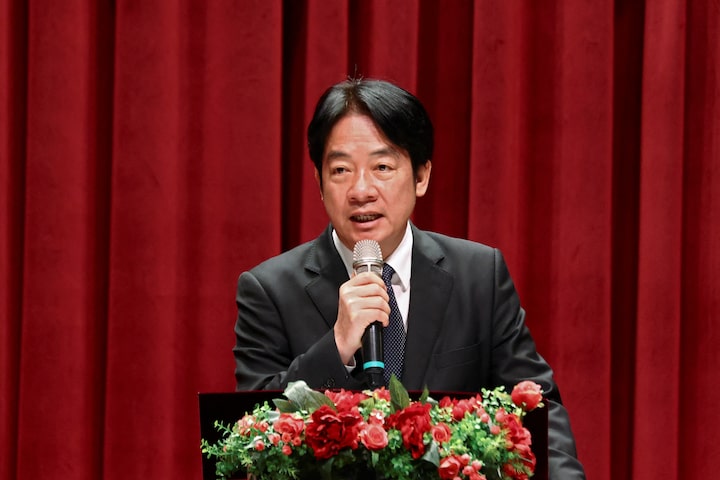Taiwan President Lai Ching-te speaks at an event marking the 75th anniversary of the Battle of Guningtou, on Kinmen island, Taiwan October 25, 2024. REUTERS
TAIPEI, April 11 (Reuters) – Taiwan is to be included in the first batch of trading partners to hold talks with the United States, President Lai Ching-te said on Friday, vowing to be ready for the discussions.
U.S. President Donald Trump said on Wednesday he would temporarily lower the hefty duties he had just imposed on dozens of countries while further ramping up pressure on China. Taiwan, a major semiconductor producer, was due to be hit with 32% tariffs.
Countries around Asia have already said they have begun or are preparing to begin talks with Washington over the tariffs, and the White House has said nearly 70 countries have reached out to begin negotiations.
“We are in the first batch of negotiations, and the government will be well prepared,” Lai told business leaders in the central Taiwanese city of Taichung, in comments broadcast live by local media, without offering a timeframe.
“Taiwan’s desire to strengthen economic and trade cooperation with the United States over the past years can be (fulfilled) by taking this opportunity,” he added.
The office of the United States Trade Representative did not immediately respond to a request for comment sent outside of office hours in Washington.
Lai offered zero tariffs on Sunday as a basis point for talks with the United States, saying Taiwan would buy more from and invest more in the country.
Taiwan, home to the world’s largest contract chipmaker TSMC, has long sought a free trade deal with the United States.
Despite the absence of formal diplomatic ties, the United States is Taiwan’s most important international backer and arms supplier.
Taiwan faces increase military and political pressure from its giant neighbour China, which views the democratically governed island as its own territory. Taiwan’s government rejects those claims, saying only the island’s people can decide their future.
Reporting by Jeanny Kao and Ben Blanchard; Editing by Raju Gopalakrishnan





